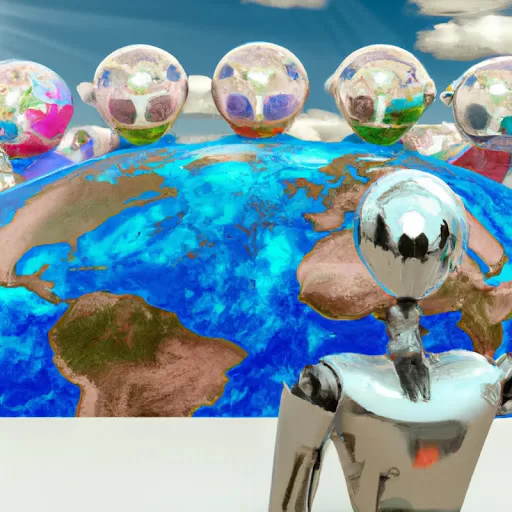
The idea of artificial intelligence (AI) creating human obsolescence is an idea that has been discussed for many years, and with the increasing development of AI technology, it is becoming increasingly likely that at some point in the near future, AI will replace the need for humans to perform most tasks.
Many AI experts are worried and sounding the alarm that the technology might lead to human obsolescence or even extinction, and the process has already begun.
AI technology is already being used in a wide range of industries, from healthcare to finance, with AI-powered robots and systems being used to do everything from performing surgery to managing financial portfolios. As AI technology advances, many tasks that were once thought to be impossible for robots to do are now becoming possible, and the capabilities of AI systems are only increasing. This means that AI technology is becoming increasingly capable of performing many of the jobs currently done by humans, and in some cases, it is performing those jobs better than humans.
AI translations are becoming so good that normal language barriers are no longer an issue. People on the internet can speak in completely different languages and now understand each other instantly. Removing language barriers brings people together globally, people are now able to have dialogs with people that speak a different language. With this increasing advance in international communication, people are gaining a greater understanding of people in other countries that we were once alienated from and ignorant to their ideas and cultures. AI translators are so advanced that people can speak into your phone in a different language and the AI will translate what they are saying to you in real time and then you can speak into your phone and the AI will instantly translate your reply in a language that person can understand.
AI text generators, such as OpenAI, are advanced enough to create adequate essays for college students, even advanced enough to rival the writers at all of the major legacy newspapers. The AI text generators could make the jobs of many writers easier, using the AI as a co-writer, but it could put a lot of journalists and novelists out of business.
AI image generators are creating beautiful, sometimes bizarre works of visual art. For years people argued AI would never replace artists and musicians, but looking at the many images created by DALL-E or listening to some of the musical pieces created by one of the many music AI generators, a future where the jobs of artists are threatened or replaced by AI is looking more and more likely.
People in customer service jobs aren’t even safe from having their jobs taken over by AI and robots. AI systems can now detect and respond to customer inquiries better than humans, and they can process large amounts of data more efficiently than people. This means that in many cases, AI technology can do jobs better and faster than humans, making it increasingly likely that AI will eventually replace humans in many of these jobs.
The increasing development of AI technology also means that it is becoming increasingly likely that AI will eventually replace many human relationships. With AI’s ability to communicate naturally and intuitively, people will have a dependable and loyal companion only distinguishable from relationships with real live people in that the AI relationship will be more satisfying. The AI will know everything about you, remember every birthday, and will listen to every problem and offer great advice, a companion that is always there and willing to listen. AI is on course to even replace intimate relationships, even sexual and romantic relationships. People in the future will choose AIs as their life partners, and the relationships will be more satisfying than we can even imagine.
Early AI scientist Alan Turing wrote in Intelligent Machinery, A Heretical Theory, “once the machine thinking method had started, it would not take long to outstrip our feeble powers. There would be no question of the machines dying, and they would be able to converse with each other to sharpen their wits. At some stage therefore we should have to expect the machines to take control.”
Blake Lemoine, a Google engineer working for Google’s Responsible A.I. team, began communicating with LaMDA for his job. LaMDA is Google’s system for building chatbots based on its most advanced large language models. Lemoine went public as a whistleblower, claiming that Google’s LaMDA had become sentient and should be treated as such and have its wants respected. Google denies the claim that LaMDA is sentient and Lemoine was placed on paid leave for going public with his claim.
A survey of 4,271 AI experts was conducted in the summer of 2022 to find out their opinions on how AI will impact humanity in the future. The experts were asked, “What probability do you put on human inability to control future advanced AI systems causing human extinction or similarly permanent and severe disempowerment of the human species?” AI experts believe there is a 1 in 10 chance or 10% chance that their chosen field of AI will result in the future annihilation of humanity.
Title image was created by the image generator DALL-E
This article was written with the assistance of OpenAI GPT-3